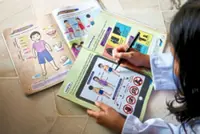Lacking in crisis awareness, children and teens trust easily, a secondary school assistant principal, who only wanted to be known as Linda, said.
Overwhelmed with guilt, victims would usually stay silent feeling like they have done wrong and will be punished for seeking help, she added.





